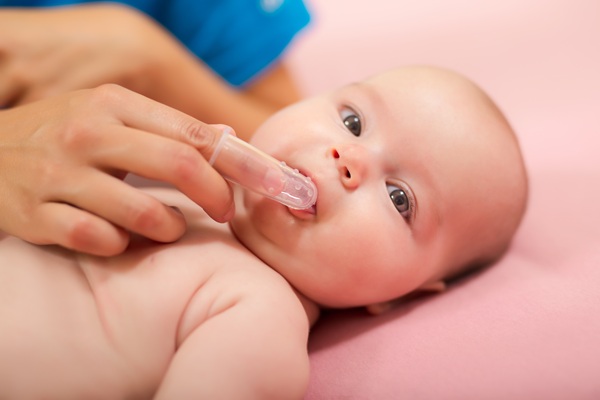The Basics of Infant Dental Care

When parents invest in infant dental care, they can help lay the foundation for their young children to have a lifetime of healthy oral habits and a bright smile. Establishing good dental practices can begin even before the first tooth emerges, typically around six months of age. Early dental care can prevent future complications and promote your infant's overall well-being.
The importance of infant dental care
Good oral health is important for overall health, even in babies. Establishing healthy dental habits early helps prevent tooth decay, gum disease, and other oral health issues. Taking care of infants' teeth also supports proper speech development and healthy eating and builds their self-esteem as they age.
When to start dental care
Dental care should begin during infancy, well before the first tooth appears. Pediatric dentists recommend cleaning a baby's gums with a soft, damp cloth after feeding. This practice helps remove bacteria and familiarizes the infant with oral care routines when a trusted adult cleans their mouth.
The infant's first tooth will typically erupt around six months of age. At this stage, parents can use a soft-bristled, age-appropriate toothbrush and a rice-sized amount of fluoride toothpaste to clean the teeth. A small amount of fluoride toothpaste can help prevent tooth decay. Parents should also check the infant's gums and teeth about once a month by lifting their lips to look for decay and inflammation on the outside and inside surfaces of their teeth.
When infants are teething, their gums can be sore, which can cause them to be more fussy. Parents can rub their gums with a clean finger or a damp washcloth to try to ease the discomfort. They can also give the infant a firm rubber teething ring or a cool spoon.
First dental visit
The American Academy of Pediatric Dentistry recommends scheduling a child's first dental visit by their first birthday or within six months after their first tooth appears. This early visit allows the pediatric dentist to evaluate the child's oral development, which helps reduce the risk of tooth decay.
These appointments also allow parents to learn effective home care techniques. Regular check-ups every six months are important for monitoring dental growth and identifying potential issues early on, such as malocclusions (misalignments). Infant dental care visits help babies subconsciously establish a positive relationship with the pediatric dentist, which can ease fear and anxiety about future visits.
Preventing early childhood tooth decay
Early childhood tooth decay, or nursing caries, can begin as soon as the first tooth appears. This condition is typically caused by prolonged exposure to sugary liquids such as bottled formula, milk, or juice, especially at bedtime. To prevent tooth decay, parents should do the following:
- Avoid putting the baby to bed with a bottle
- Limit sugary snacks and drinks
- Wean the child from the bottle in a timely manner
- Begin brushing as soon as the first tooth erupts
- Take the child to the dentist by the time they are a year old
These practices are essential to infant dental care and significantly reduce the risk of cavities.
Take care of your baby's future smile
Infant dental care is a vital component of your child's health. By beginning oral hygiene routines early in your baby's infancy, you establish a strong foundation for lifelong oral health. Call our Cape Girardeau office to learn more about our infant dental services or to schedule an appointment.
Request an appointment here: https://www.pediatricdentistrysemo.com or call Jayne F. Scherrman JS Pediatric Dentistry at (573) 271-3062 for an appointment in our Cape Girardeau office
Check out what others are saying about our services on Yelp: Read our Yelp reviews.
Related Posts
Kids' dental crowns protect weakened baby teeth so children can chew comfortably and speak clearly. When a cavity is too large for a filling, kids' dental crowns cover the remaining structure and restore everyday function. They also help maintain space for incoming adult teeth, which supports normal alignment and jaw development. A general dentist evaluates…
A pediatric root canal is sometimes necessary to prevent the loss of a decayed or damaged baby tooth. Although the goal is to prevent dental cavities and tooth infections, they can still develop, especially in young children (who, on average, are more prone to cavities than teens and adults). It is essential to quickly detect…
As your child gets older, they will gradually learn how to properly care for their teeth. However, they may miss some spots in hard-to-reach areas. Dental sealants for kids can prevent oral health issues. These coatings create a protective barrier on the chewing surfaces of teeth, reducing the risk of decay. This preventive dental treatment…
Space maintainers are common dental pieces that are placed where teeth once were. The empty space created by dislodgement or extraction can put the oral cavity at risk, which is why the role that space maintainers play is so large. Orthodontists and many other dental professionals recommend space maintainers to set the child up for…
